Renewable Energy
Did you know that buildings are the greatest source of greenhouse gas (GHG) emissions in Princeton? Get the fossil fuels out of your home by electrifying your appliances and switching to solar energy! With new technology in rooftop solar installations and community solar projects, both homeowners and renters can take advantage of renewable energy from the sun.
Subscribe to a Community Solar Project
Also called solar farms, or shared solar, community solar projects are large, solar arrays typically located on commercial buildings or other sites that generate electricity for residential use. Subscribers receive a credit on their electricity bill. This is a great option for renters, homes that have too much shade, or are unable to afford the cost of rooftop installation.
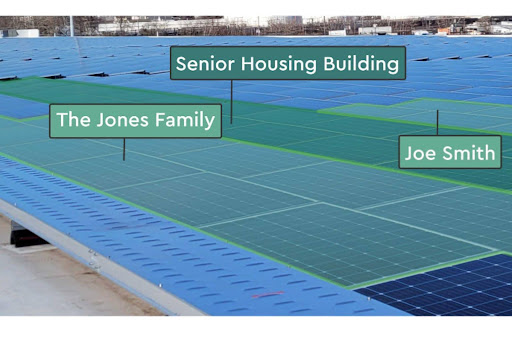
Take Action Now
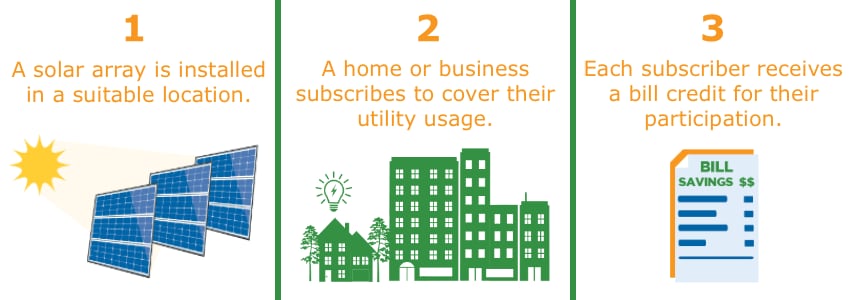
Subscribe! The first step is to find a project in your area using NJ CEP and Sustainable Jersey’s Community Solar Project Finder. Enter your zip code and compare the eligibility requirements, savings, and contract terms. Sustainable Princeton has a Community Solar Tip Sheet that will help you gather information to compare projects. Click the link to the solar project you want to join and complete the application. If there is room, the subscriber organization will let you know you have a spot. If the project is full you will be put on a waiting list. Your electricity utility bill will look a little different once you’ve subscribed.
Install Rooftop Solar Panels
Solar is booming in New Jersey. Whether you want to install your own panels or battery backup, there are many options to consider. Join the revolution and harness electricity from the sun and the savings on utility bills.
Find out if solar panels are right for you
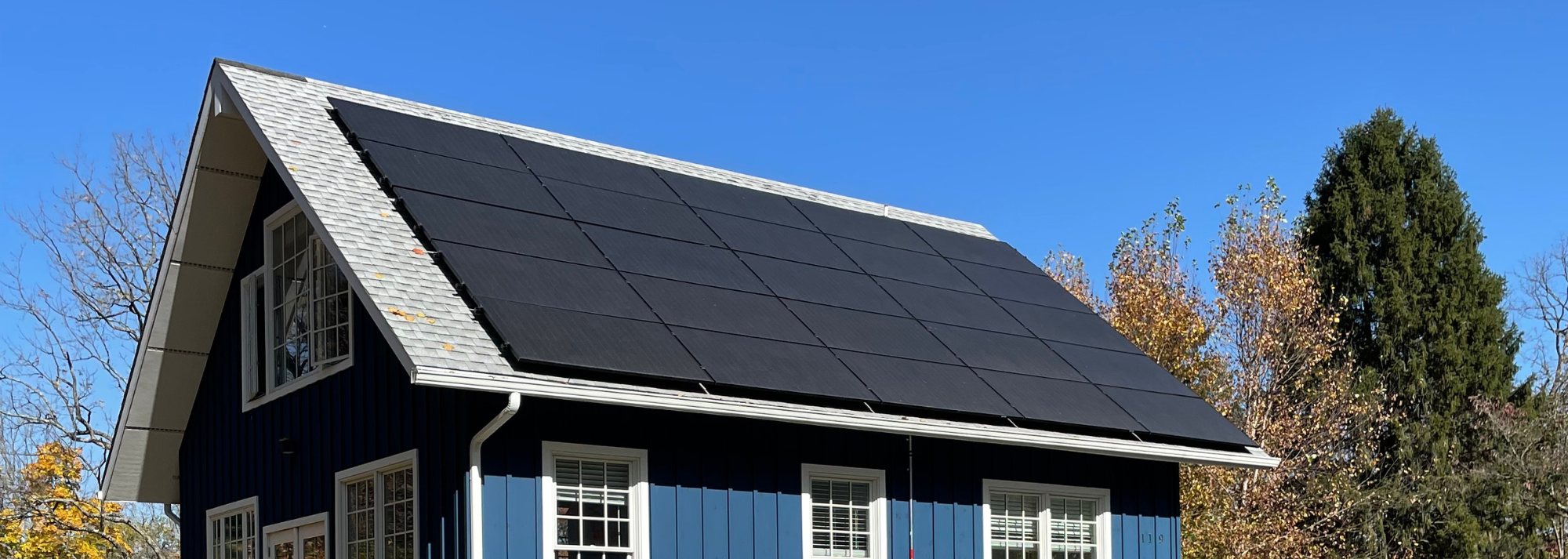
Solar installers will assess your roof’s characteristics, including:
- Shade: Use Google’s Project Sunroof to understand your property’s shade. If healthy trees are preventing solar, be sure to consider the benefits of your trees before removing them. Consider subscribing to a community solar project instead.
- Direction: Panels are most effective on a south-facing roof, though east and west-facing roofs may be candidates if they receive enough sunlight.
- Age: Panels are best installed on a newer roof to simplify roof maintenance.
- Size: A general rule of thumb is that 100 square feet of roof space provides one kilowatt of electricity.
- Type: Slate and wood roofs are often not suitable for solar installations, but asphalt, metal, and clay are typically compatible, as are flat roofs covered in rubber or plastic.
- Suitability: Check with PSE&G to ensure the nearby electric circuits are suitable for new solar capacity.
- Preservation: If you live in a designated historic district or site in Princeton, be sure to check with the Office of Historic Preservation.
Buying vs. leasing solar panels
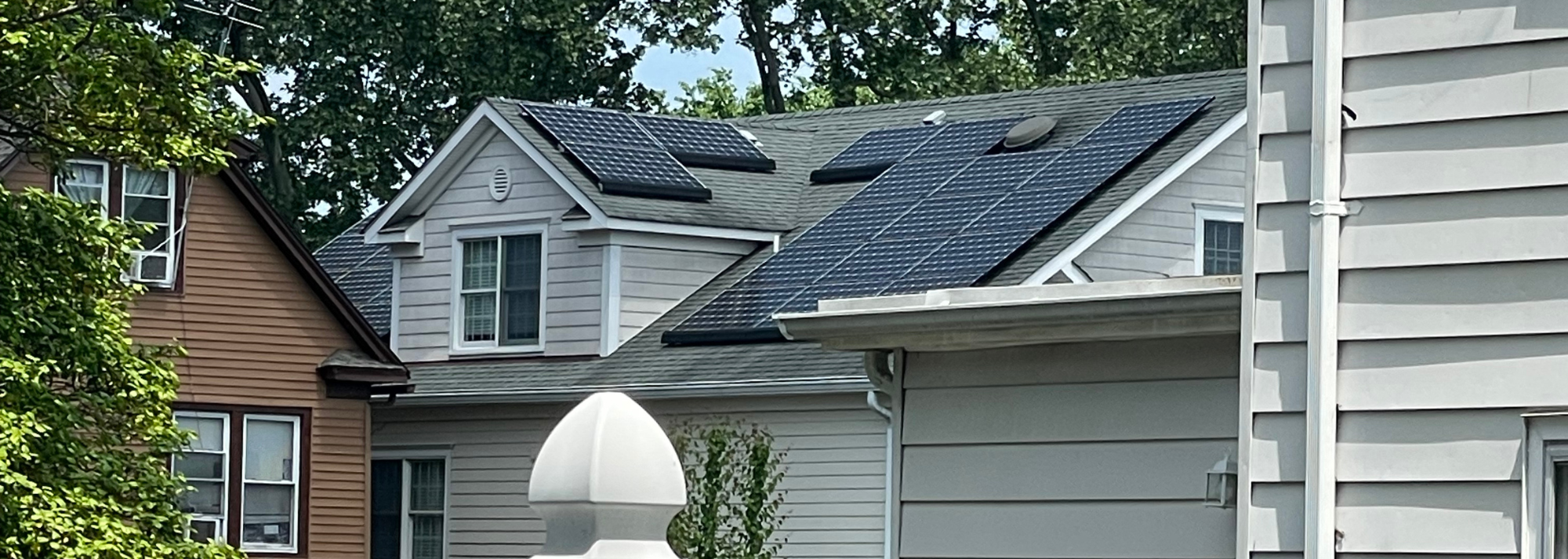
Buying Solar Panels
When you buy a solar photovoltaic (PV) system, you own the system, enjoy the monthly electricity savings, and receive rebates and incentives. Solar system expenses commonly reach $15,000 to $30,000, but rebates & incentives can reduce the upfront cost dramatically. Depending on your circumstances, the return on your investment can be impressive — some homeowners pay for the system within eight years but keep the panels for 25-30 years.
So, what exactly are these savings, and who provides them? Here’s the breakdown for a New Jersey homeowner:
- Net metering: If approved by your utility, this New Jersey program allows you to sell excess electricity back to the grid at the retail rate.
- Investment Tax Credit (ITC): This incentive is available through the 25D Residential Clean Energy Property Credit, a US government program that covers 30% of qualifying costs of installing solar panels.
- Property Tax Incentive: New Jersey allows panel owners to deduct 100% of the value added by a renewable energy system — as determined by a local Tax Assessor — from their local property taxes.
- Transition Solar Renewable Energy Certificate (TREC): Here in New Jersey, you also generate income from your panels — one TREC for every megawatt-hour of electricity created by your panels. TRECs can be sold in the market. To learn more, visit Solar Incentives NJ.
- Sales Tax Exemption: New Jersey does not charge sales tax on solar energy equipment.
Leasing Solar Panels
Another option is to lease a solar PV system. In this scenario, there are zero upfront costs and your electricity bill will decrease or even disappear, while the third-party owner collects the other benefits to offset their installation cost.
Commercial properties in New Jersey can enjoy these same incentives. Even if your organization is tax-exempt these incentives can be received through direct or elective pay.
The EnergySage Solar Marketplace can help home and business owners find and evaluate solar options, including finding installers and reviewing loan or lease options.
Battery Backup
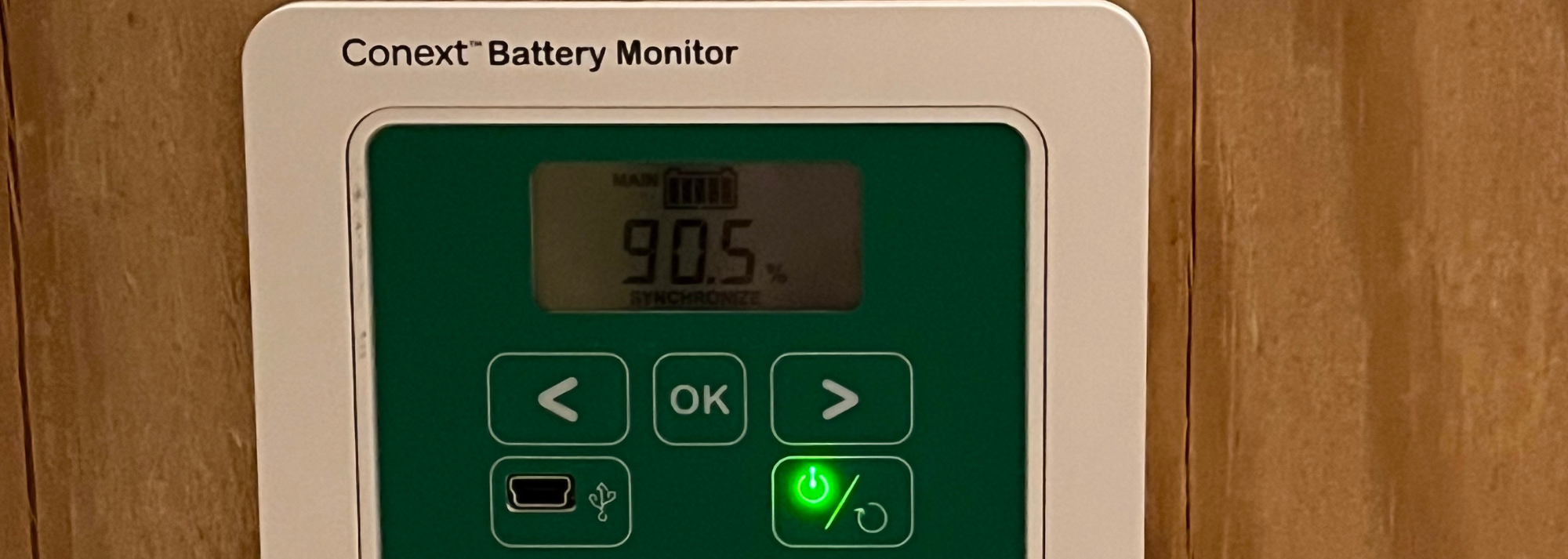
Energy storage systems offer the ability to provide “off the grid” power to part or all of your home. When coupled with solar, battery backup systems can store generated energy and provide power when the sun isn’t shining. Batteries can also be used with PSE&G’s Residential Load Management Service to purchase energy from the grid during off-peak times, potentially returning even more money to your pocket.
Check the EnergySage website to learn about different battery storage systems currently available.
Ground-mounted panels
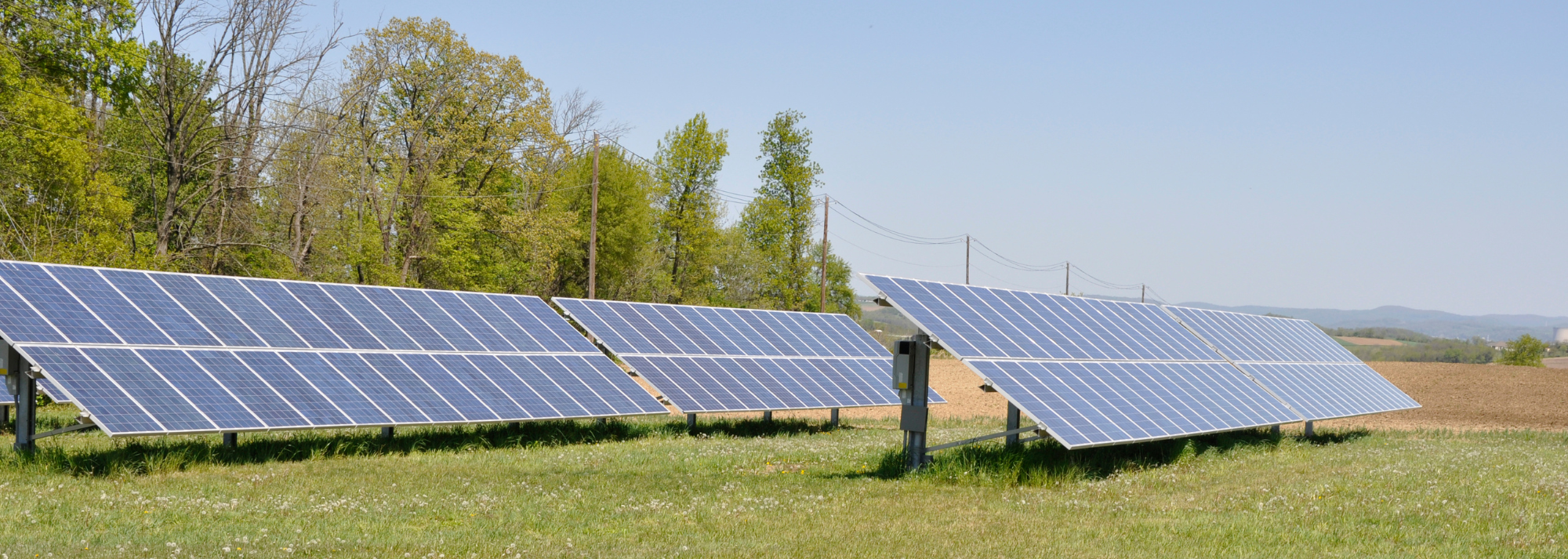
If rooftop solar isn’t right for your home and you have sunny open space on your property, there are two options for ground-mounted panels to consider. Standard ground mounts contain a metal frame to hold the panels at a fixed angle. Pole-mounted solar systems are raised on a pole, and many offer tracking systems to automatically rotate the panels toward the sun. Ground-mounted panels tend to be more productive panels since they can be installed at the ideal angle and, due to being easily accessible, are more convenient to maintain.
Early in your consideration process, be sure to investigate your local building codes and zoning restrictions. Princeton residents should start with the Zoning Department. Learn more about ground-mounted solar panels via this EnergySage website.
Solar shingles
While traditional rectangular rooftop solar panel arrays are booming in New Jersey, building-integrated photovoltaics (BIPV), a new technology that integrates solar into your home, are also showing up in the market.
Unlike historic panels that are added on top of a shingled roof, these solar-enabled glass shingles protect your roof while also generating renewable energy for your home.
Several companies are now promoting solar tiles, including RGS Energy, SunTegra, and Tesla. Be sure to check your local building codes, prior to proceeding with these new and upcoming technologies.
Where does Princeton’s electricity come from?
When you flip the lights on, do you know where that electricity comes from? A coal plant in Kentucky or West Virginia? A gas-fired turbine in Illinois or a nuclear plant in New Jersey? A wind turbine in Pennsylvania? The answer is all of those and more. The electricity coming through your outlets is actually a mixture of electrons from a variety of sources. New Jersey is a part of the PJM regional transmission organization that coordinates the movement of electricity in all or parts of 13 states and the District of Columbia, from New Jersey to Illinois and south to Kentucky and Virginia.
Even if you are signed up for community solar or have solar panels on your rooftop, your electricity is still coming from this shared grid. Installing rooftop solar panels reduces greenhouse gas emissions of our electric grid but does not mean all of the energy used at the home or building is 100% renewable. This is why energy efficiency and conservation are so important to reduce emissions.




